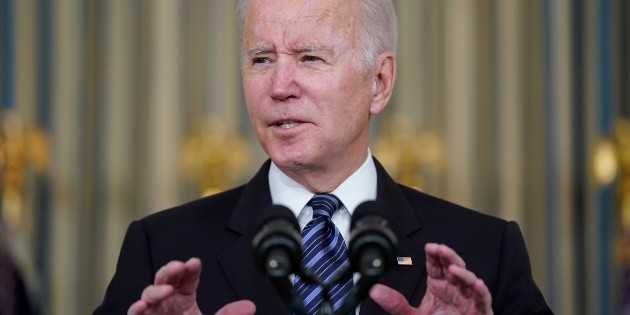The lower house of the United States approved this Friday night the infrastructure plan of 1.2 trillion dollars promoted by the president, Joe Biden, after a dramatic day in the Legislature over the struggles within the Democratic Party.
The plan, which had been approved in the Senate in August and had been stuck in the lower house for months, it was approved with 228 votes in favor and 206 against, so now it only requires Biden’s signature.
READ ALSO : US: Thousands of intelligence agents still not vaccinated against coronavirus and could be fired
Although the Democrats have a majority in the Lower House, six of their congressmen, the most progressive, opposed the text, necessitating the support of 13 Republicans.
The disagreement between Democrats has its origin in a struggle between the two extremes of the party over the approval of its priorities.
The progressives demanded that this infrastructure law be put to a vote on par with Biden’s social agenda, a package of 1.75 billion after several cuts, something to which the president himself had committed, but the centrists refused.
This pulse has dragged on for months, with continuous pressure from the Democratic leadership, the White House and Biden himself on both sectors to approve his agenda.
The 1.2 trillion plan approved today, which only contemplates about $ 550 billion in new spending, it is substantially less than the initial package presented by Biden last March of $ 2.25 trillion.
The package includes more than $ 110 billion to repair roads, bridges and highways, and $ 66 billion to promote passenger and freight rail.
This latest investment represents the largest injection of funds into the country’s rail network in half a century.
The bill also allocates $ 55 billion to address water supply problems, such as the replacement of all lead pipes, and contemplates 65 billion dollars to modernize the electricity grid.
It also assigns billions of dollars to rehabilitate ditches, reform ports and airports, and expand broadband access.
The legislative text also pays attention to the fight against the climate crisis and dedicates 7.5 billion dollars to create a network of electric vehicle charging stations in the US, one of Biden’s priorities.
In this section it contributes 47 billion dollars to respond to fires, droughts, coastal erosion and heat waves, among others. In total, this is the largest investment in public works in the US in years.

